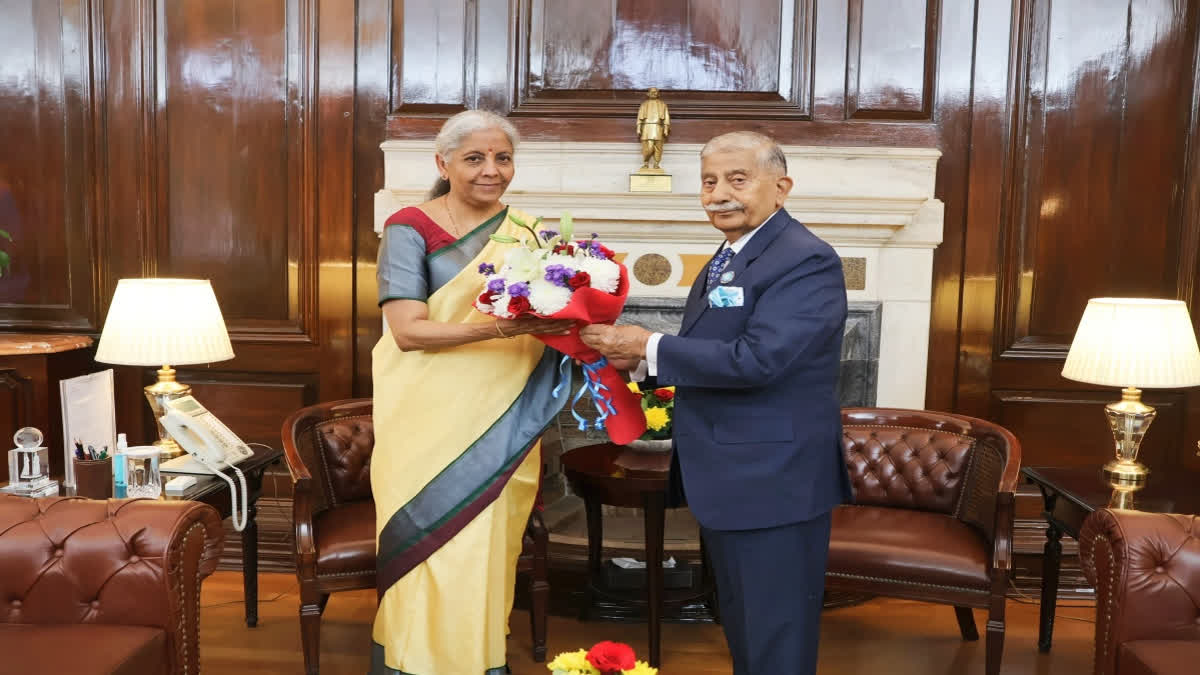Leh: A significant reduction in the Union Territory of Ladakh’s annual budget allocation has sparked widespread resentment among political leaders and stakeholders in the region. The UT, which had been receiving an annual budget of nearly Rs 6,000 crore since its formation in 2019, has witnessed a sharp cut of Rs 976 crore this fiscal year, reducing the allocation to Rs 5,024 crore.
Leaders from across Ladakh have raised concerns, stating that the budget cut will severely impact the region’s development projects, which are crucial for addressing its unique geographical challenges and strategic importance. Previously, Ladakh received Rs 5,998 crore, which was utilised for various infrastructure, health, education, and welfare schemes.
The resentment comes amid growing calls for increased autonomy and special constitutional safeguards for Ladakh. With demands for statehood and representation gaining traction, the budget cut is likely to fuel further debates about the Centre's commitment to the development of the UT.
As leaders plan to take up the issue with the Centre, residents hope for a reconsideration of the budget allocation to ensure Ladakh's progress does not face unnecessary hurdles.
Questioning the government, Haji Hanifa Jan, MP Ladakh said, "After Ladakh became a Union Territory, the budget was initially increased, but now it appears that this was merely a showcase for the first few years. Each year, we see a reduction in the budget, and it is happening practically."
He highlighted the paradox of announcing the creation of five new districts while simultaneously reducing the budget. "How will development take place under such conditions? Instead of cutting funds, there is a clear need to increase the budget to ensure progress in the newly formed districts and across Ladakh," he added.
He said, "Last year, Kargil Hill Council achieved 96-97% expenditure, and overall spending in the SDP and State sectors has improved yearly. Despite this progress, Ladakh's budget has been reduced, with the same reduced allocation proposed for next year. If the CAPEX budget doesn't improve, it will create financial burdens and liabilities in the coming years, especially for contractor payments. Although initially, a lot of money has been surrendered, over the years we have shown a lot of improvement in the expenditure."
MP Haji Hanifa said, "I am already in talks with the Finance Ministry and if needed will also raise this issue in the Parliament. Also, the Lt Governor of Ladakh has met the Finance Minister (Nirmala Sitharaman) regarding the same. I am hopeful that the issue will be solved soon. Even I fail to understand the basis for Ladakh's budget reduction, especially with expenditure billing still ongoing. While budgets for Chandigarh and Andaman were also reviewed, their allocations were not reduced—only Ladakh's was."
Deldan Namgyal, Former MLA of Nubra expressed deep concerns.
Namgyal said, "After becoming a UT, Ladakh received a separate UT budget with three components: State Sector (Rs 185 crore, now reduced to Rs 59 crore), the Special Development Package (Rs 758 crore), and the Capital Expenditure (CAPEX) of Rs 110 crore each for LAHDC Leh and Kargil. Ladakh, unlike any other UT, is the largest in terms of area and is widely scattered. Considering our topography, harsh climate, and tough terrain, this reduction is unjustified. Although funds here are lapsable, they should not be reduced."
Deldan Namgyal also noted the lack of law-making powers for Ladakh, stating that the region's legislative representation is limited to one Member of Parliament.
"If the Centre had maintained the existing budget, it would have shown respect for the aspirations of the people of Ladakh. Also, I was hoping that they would not touch the financial autonomy of the Councils," he said.
Highlighting Ladakh's short working season of only six to seven months due to extreme weather, Namgyal suggested the government provide exemptions for the region. "Unlike other states, Ladakh cannot execute projects throughout the year in temperatures of minus 20-30 degrees."
He also raised concerns over the weakening of LAHDCs since the UT’s formation in 2019, citing power conflicts between the UT administration and the councils. "If the council budget has been reduced to Rs 234 crore, the CAPEX budget is now similar to what we had under the erstwhile Jammu & Kashmir. Both LAHDCs should rise above politics, find the reasons for the reduction, and fight for reinstating the funds," he added.
Former MP Ladakh, Jamyang Tsering Namgyal, stated that approximately Rs 1,000 crore has been deducted from the overall budget. He emphasised that it is the responsibility of elected representatives to closely monitor budget allocations, revised estimates, and annual plans.
Discussing the difference between a budget cut and a budget lapse, he said, "This year, in the middle of the financial year, the budget has been reduced — a clear example of a budget cut. In contrast, last year witnessed a budget lapse, which is relatively common and occurs across various administrations."
"A budget lapse typically reflects the competency of the Councils, while a budget cut highlights the inefficiency of the elected representatives. Unfortunately, the direct impact of a budget cut falls on the people. However, there is hope that the budget allocation will maintain the status quo, as the Lt. Governor of Ladakh has met with Finance Minister Nirmala Sitharaman to request this. Until last year, the budget ceiling had remained unchanged for five years, even when actual expenditures were lower. This year, the expenditure estimate is still under review, yet the budget has already been reduced, reflecting a failure on the part of the MP Ladakh." he added.



